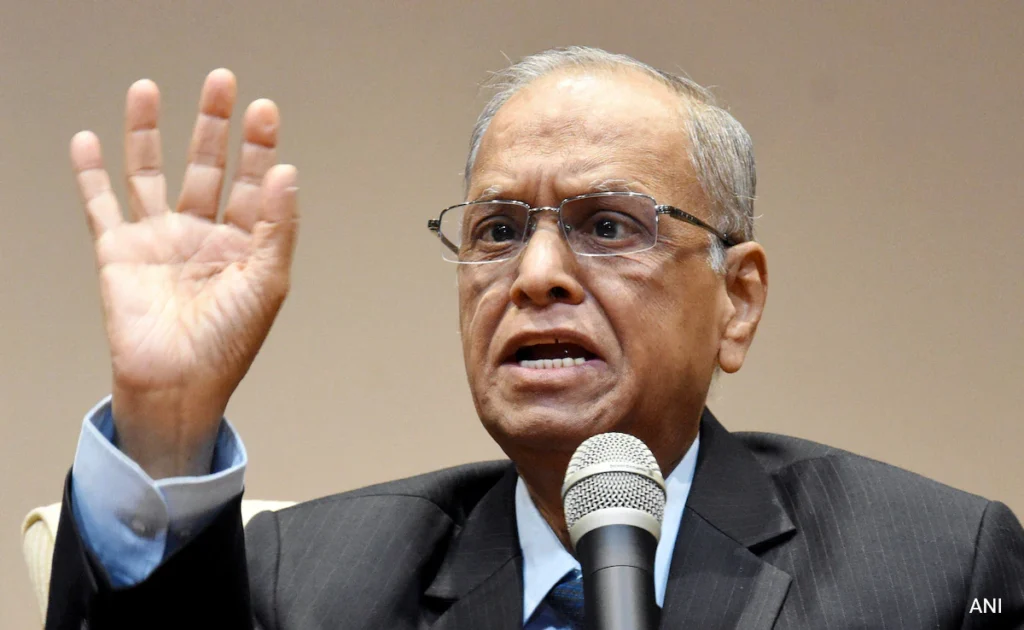Key Contents
Infosys co-founder Narayana Murthy, one of India’s most respected business leaders, has recently raised a red flag on an issue that he believes could pose a significant threat to the country’s future—population control. In a candid discussion, Murthy expressed concern that India has not paid sufficient attention to the growing population, a factor he considers critical in shaping the nation’s destiny.
Murthy’s Concerns: Population Growth as a National Risk
During a recent event, Narayana Murthy articulated his concerns about India’s population growth, emphasizing that the country’s burgeoning numbers could undermine its progress. He noted that while India has made significant strides in various sectors, the lack of focus on population control could lead to severe economic and social challenges in the coming years.
Murthy’s comments were a stark reminder that population growth, if left unchecked, could strain India’s resources, infrastructure and environment. “We, as a nation, have not paid enough attention to controlling our population,” Murthy stated, adding that this oversight might hinder India’s ability to achieve sustainable growth.

Economic Implications of Unchecked Population Growth
Murthy highlighted that a rapidly growing population could have adverse effects on the economy. With more people competing for limited resources, the strain on public services, healthcare, education and employment could intensify. This, in turn, could lead to increased poverty, unemployment and social unrest, jeopardizing the gains India has made over the decades.
From an economic perspective, Murthy pointed out that a large population can be both an asset and a liability. While a young and dynamic workforce can drive economic growth, an unmanageable population size could negate these benefits by overwhelming the country’s infrastructure and resources.
The Social Dimension: Quality of Life at Stake
Beyond the economic implications, Murthy also touched upon the social aspects of population growth. He expressed concern that the quality of life for millions of Indians could deteriorate if population control is not addressed effectively. Overpopulation could lead to overcrowded cities, inadequate healthcare and poor living conditions, exacerbating the challenges already faced by marginalized communities.
Murthy’s remarks serve as a call to action for policymakers to prioritize population control measures. He suggested that India needs to adopt a more proactive approach in managing its population growth to ensure that the benefits of economic development reach every citizen, thereby improving overall quality of life.
Learning from Global Examples
Murthy also drew attention to global examples where effective population control has played a crucial role in a nation’s development. He cited countries like China and Japan, which have implemented strict population policies that have contributed to their economic stability and growth.
In China, for example, the one-child policy (though controversial) was a significant factor in managing population growth during a critical phase of its economic development. Japan, on the other hand, has focused on creating a balanced population structure through various social policies.
Murthy suggested that India could learn from these examples and devise its own population control strategies that align with the country’s unique socio-economic context.
The Path Forward: Policy Recommendations
To address the population challenge, Narayana Murthy called for a comprehensive and multifaceted approach. He recommended that the government invest in education, particularly for women, as this has proven to be one of the most effective ways to reduce birth rates. Empowering women through education and employment opportunities can lead to smaller family sizes and improved economic outcomes.
Murthy also emphasized the need for better access to healthcare, including family planning services, to help control population growth. He suggested that the government could incentivize smaller family sizes through various policy measures, such as tax benefits and social welfare programs.
Furthermore, Murthy advocated for public awareness campaigns to educate people about the importance of population control. He believes that changing public attitudes towards family planning is crucial for the success of any population control initiative.

A Call to Action
Narayana Murthy’s warning about India’s population control highlights a critical issue that demands urgent attention. As the country continues to grow and develop, managing its population will be key to ensuring sustainable and inclusive growth. Murthy’s insights serve as a wake-up call for policymakers, businesses and citizens alike to take proactive steps towards addressing this looming crisis.
For Latest News Updates, Click Here
Sources: NDTV, Business Today.
